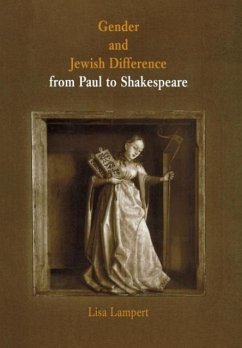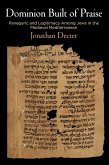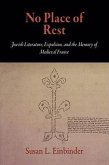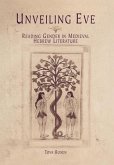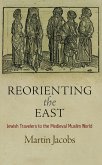Gender and Jewish Difference from Paul to Shakespeare Lisa Lampert "This work brings insight and impeccable scholarship to bear on a demanding issue that retains contemporary relevance. Highly recommended."--Choice "Lampert makes an important contribution to medieval Christian aesthetics in uncovering the supersessional thematic in the literary documents she treats, for the Old Law-New Law displacement construct she analyzes is doubtless present in many more works of art in various genres."--Speculum "Gender and Jewish Difference from Paul to Shakespeare sets out several related and ambitious agendas--to link constructions of gender and Jewishness; to show how both figurations function to establish and sustain Christian identities; and to trace these constructions through sixteen centuries of biblical, theological, and literary texts."--The Medieval Review Although representations of medieval Christians and Christianity are rarely subject to the same scholarly scrutiny as those of Jews and Judaism, "the Christian" is as constructed a term, category, and identity as "the Jew." Medieval Christian authors created complex notions of Christian identity through strategic use of representations of Others: idealized Jewish patriarchs or demonized contemporary Jews; Woman represented as either virgin or whore. In Western thought, the Christian was figured as spiritual and masculine, defined in opposition to the carnal, feminine, and Jewish. Women and Jews are not simply the Other for the Christian exegetical tradition, however; they also represent sources of origin, as one cannot conceive of men without women or of Christianity without Judaism. The bifurcated representations of Woman and Jew found in the literature of the Middle Ages and beyond reflect the uneasy figurations of women and Jews as both insiders and outsiders to Christian society. Gender and Jewish Difference from Paul to Shakespeare provides the first extended examination of the linkages of gender and Jewish difference in late medieval and early modern English literature. Focusing on representations of Jews and women in Chaucer's Canterbury Tales, selections from medieval drama, and Shakespeare's Merchant of Venice, Lampert explores the ways in which medieval and early modern authors used strategies of opposition to--and identification with--figures of Jews and women to create individual and collective Christian identities. This book shows not only how these questions are interrelated in the texts of medieval and early modern England but how they reveal the distinct yet similarly paradoxical places held by Woman and Jew within a longer tradition of Western thought that extends to the present day. Lisa Lampert teaches English literature and comparative medieval studies at the University of California, San Diego. The Middle Ages Series 2004 288 pages 6 x 9 ISBN 978-0-8122-3775-7 Cloth $69.95s £45.50 ISBN 978-0-8122-0255-7 Ebook $69.95s £45.50 World Rights Women's/Gender Studies, Religion, Literature Short copy: Gender and Jewish Difference from Paul to Shakespeare provides the first extended examination of the linkages of gender and Jewish difference in late medieval and early modern English literature, focusing on representations of Jews and women in Chaucer's Canterbury Tales, selections from medieval drama, and Shakespeare's Merchant of Venice.
Hinweis: Dieser Artikel kann nur an eine deutsche Lieferadresse ausgeliefert werden.
Hinweis: Dieser Artikel kann nur an eine deutsche Lieferadresse ausgeliefert werden.

